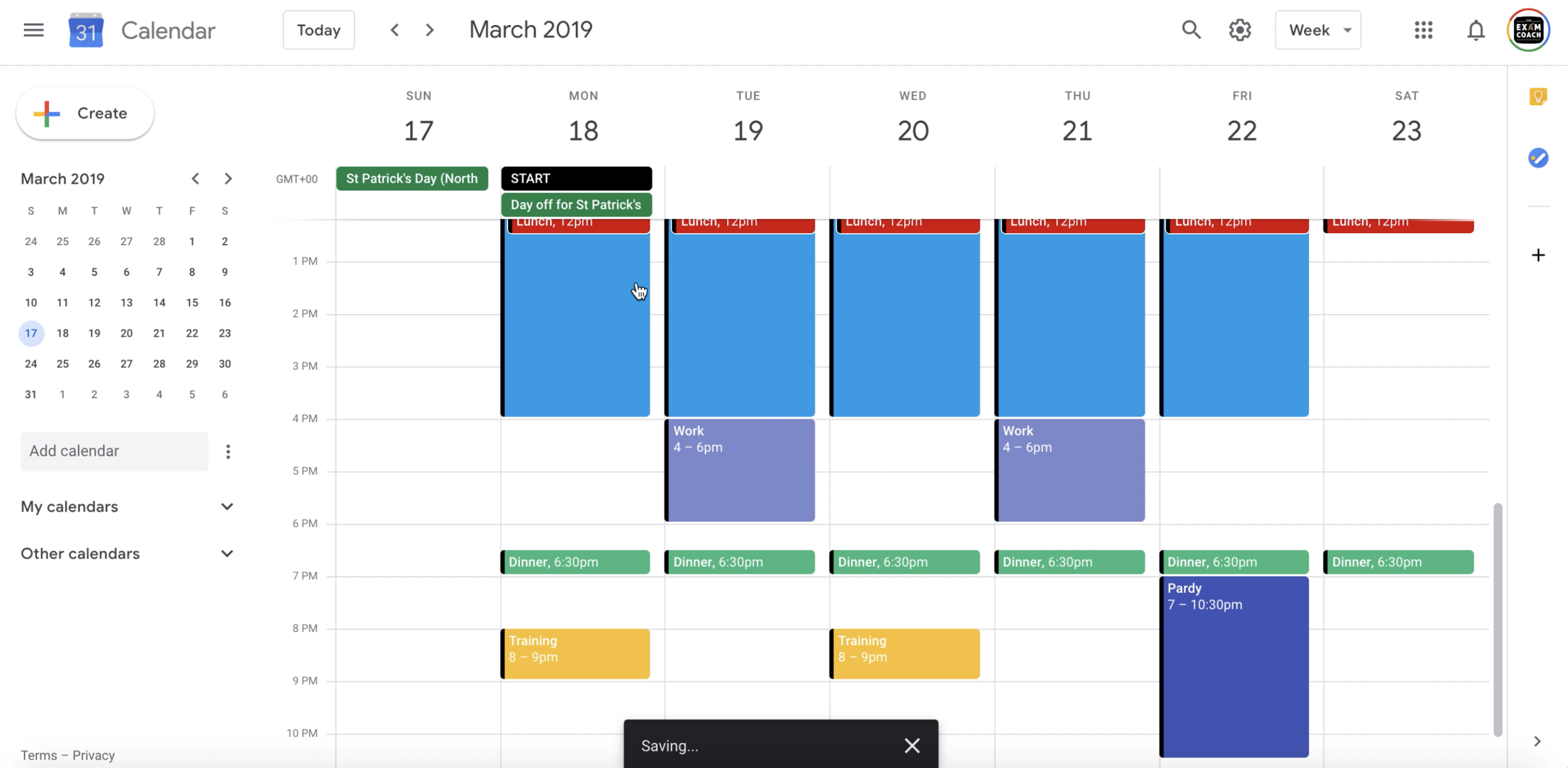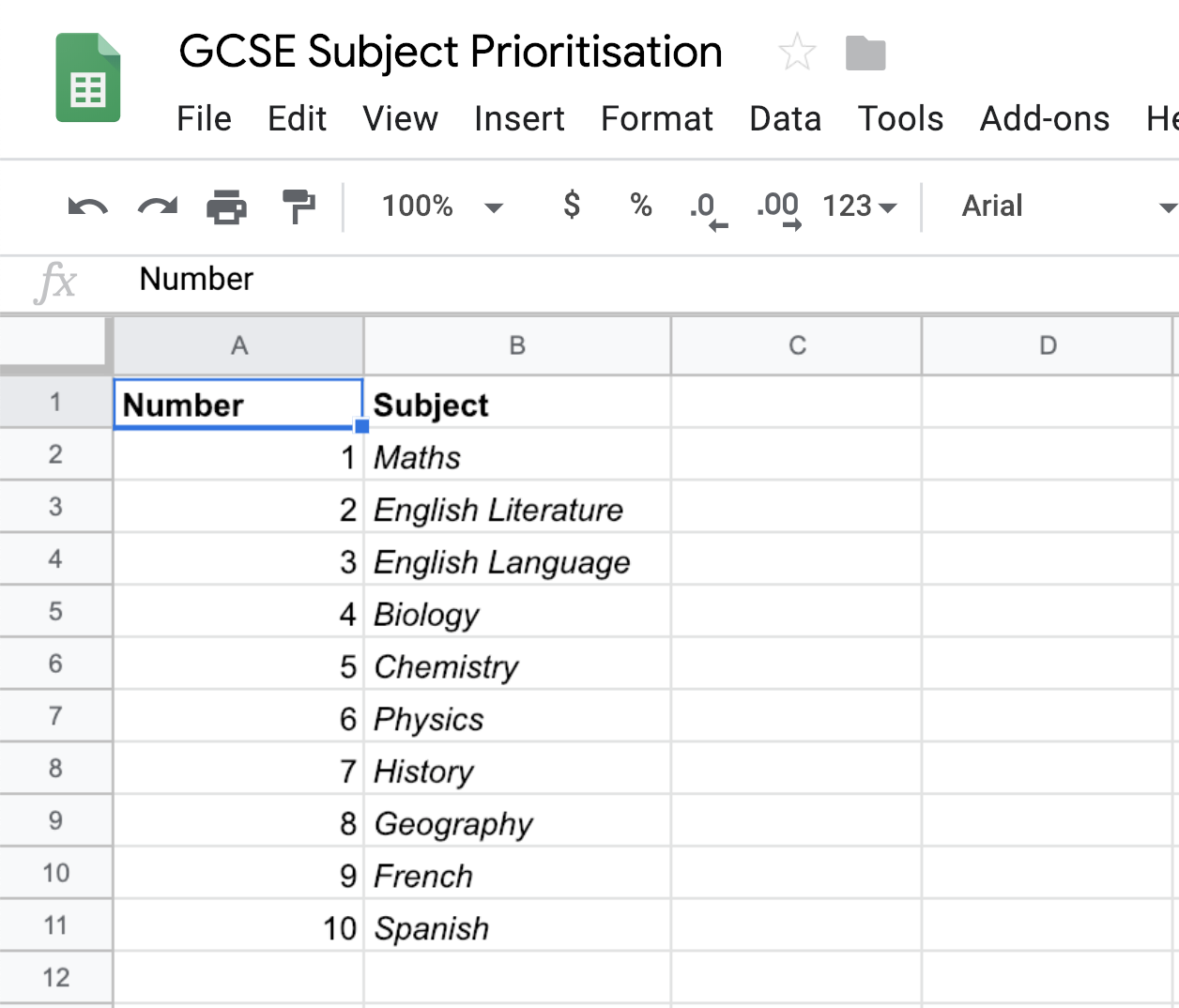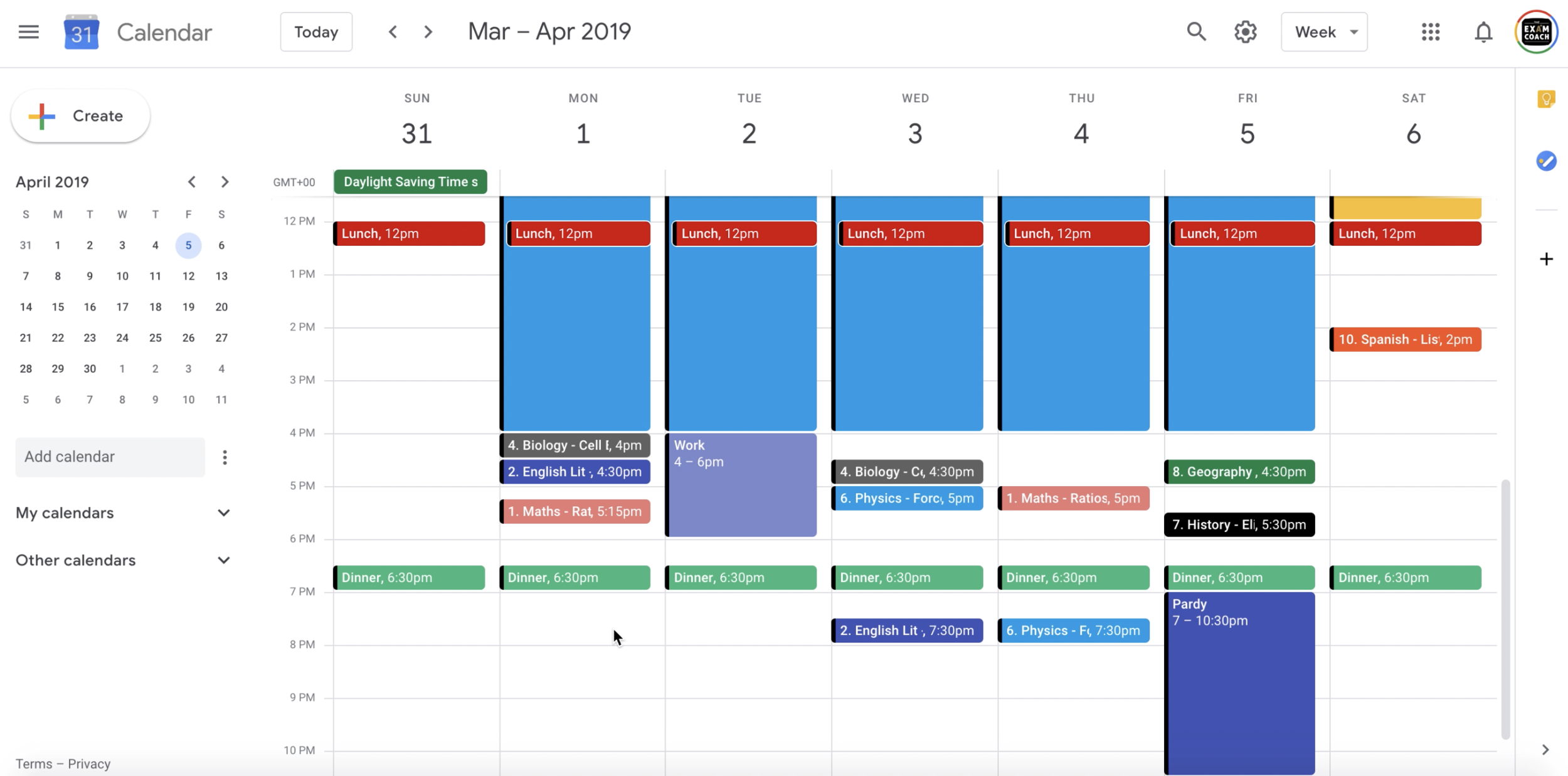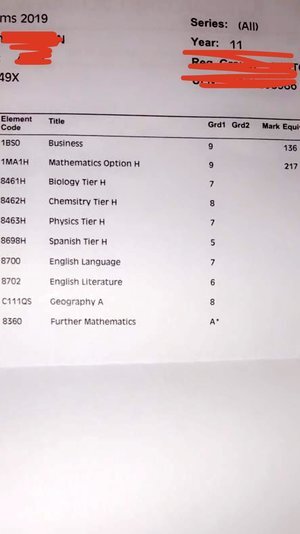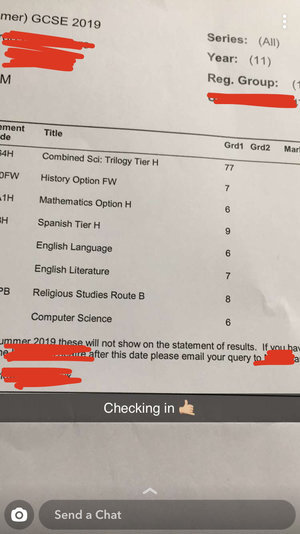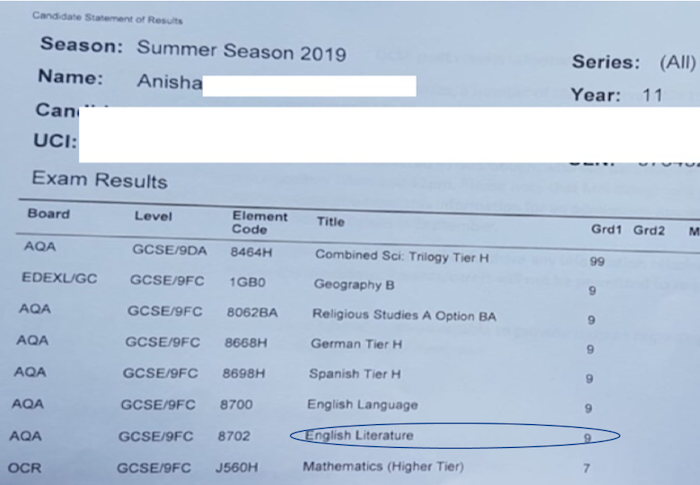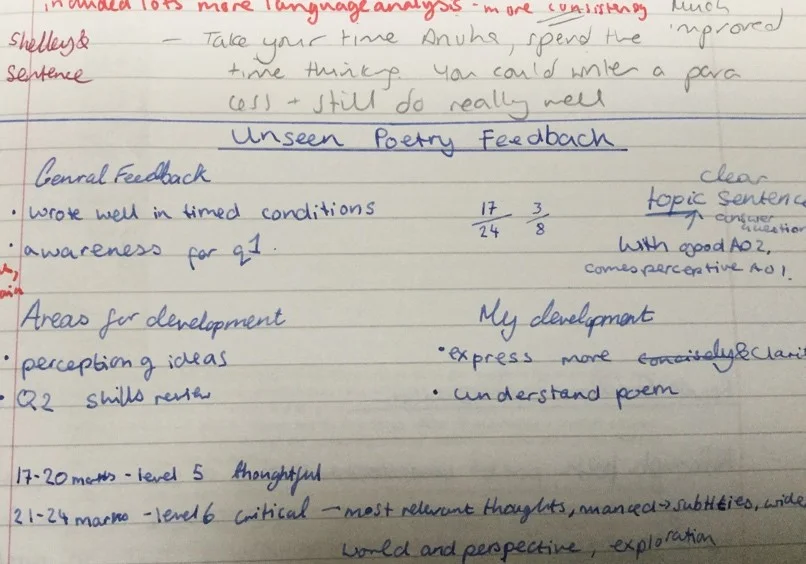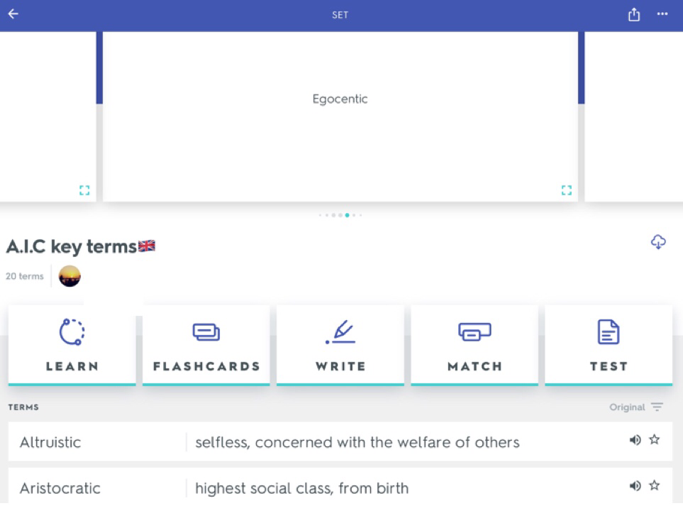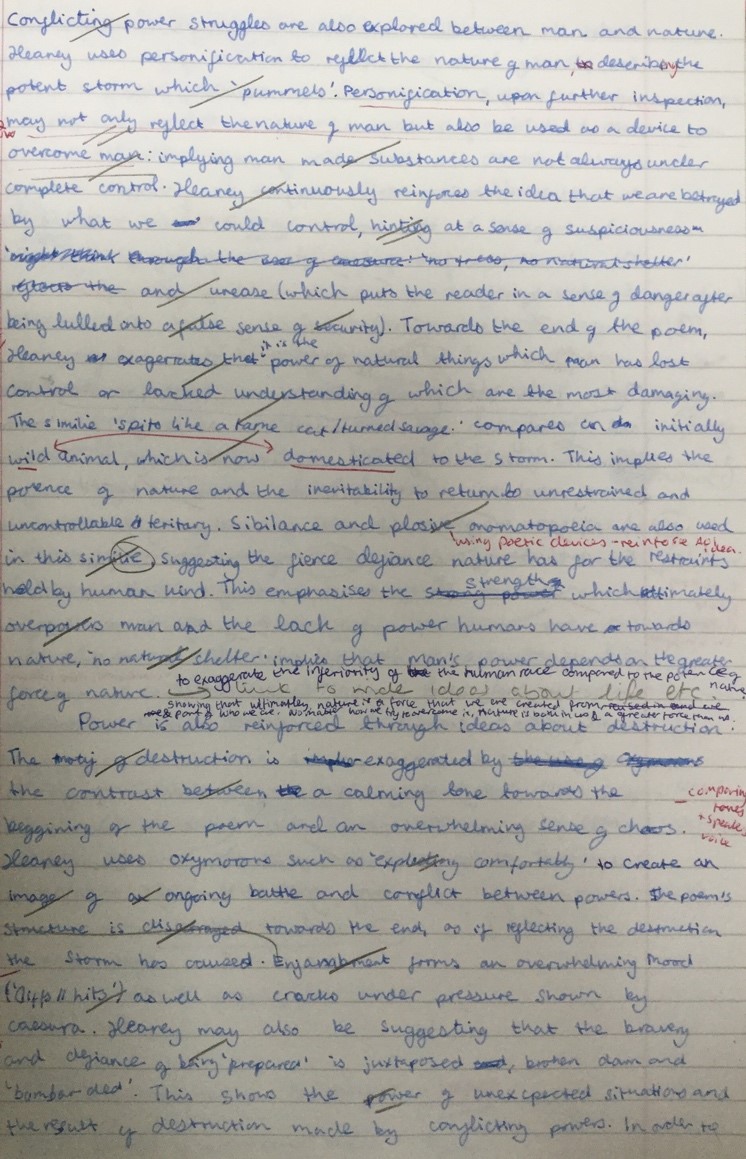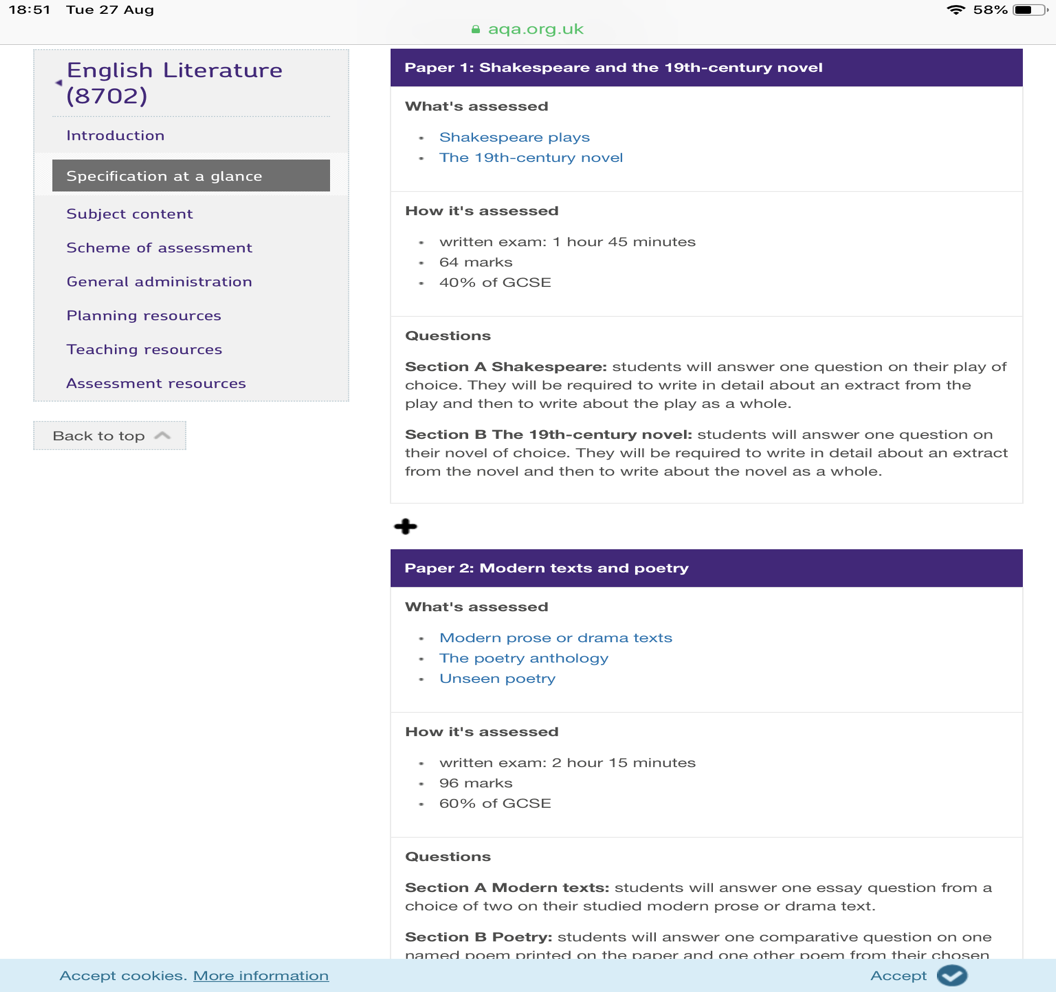“How do I make a revision timetable?”
This is one of the questions I’m asked most on Snapchat and WhatsApp. My response usually includes these three guiding principles:
Focus the majority of your effort on topics most likely to come up in the exam and carry the most marks.
Measure progress based on topic coverage rather than time studied for.
Adapt your timetable to accommodate for the rate at which you are able to understand and memorise information as time goes by.
From now on, I’m going to start sharing this blog post which breaks out what exactly should be done. Some students are able to crack on and create a timetable off the back of the three principles above, but if you would like something more prescriptive read on…
If you’re studying for GCSE this year, I recommend you dive straight into this video 👇:
If you’re doing other exams (A levels, IB or any other type of exam) take a glance at the steps below which can be applied to any set of exams. Then have a listen to the podcast linked at the bottom of this post for a version with added anecdotes, examples and a little bit of banter.
One final thing (before we get into it) I’d highly recommend you check out The Online Exam Preparation Bootcamp if you are preparing for GCSE or A Level exams this year. Now more than ever, students need all the help they can get. This audio course is absolutely the best thing I could recommend. You can also apply a huge 80% discount if you use the code: BOOTCAMP at the checkout after reading this post.
Alternatively, if you’re a teacher looking for some extra guidance and inspiration for your students, we’d love to help. Send us a message here and we’ll be in touch to see how we can help your students improve their study skills.
My First Recommendation
Go digital. Specifically, use Google Calendar (it’s available on both Android and iOS). There are a couple reasons for this:
A digital calendar is likely to always be with you. Why? Google and I both know you don’t leave the house (or anywhere) without your smartphone. You need to know what you’re doing and when you’re doing it to avoid time in between tasks becoming 3 hour long gaming/social media scrolling sessions.
Flexibility. You can make adjustments neatly and cleanly. Your timetable won’t look like a 3 year old has taken a set of crayons to it by the end of week 1. Messy timetables eventually lead to disorganisation. Rigid timetables which aren’t adjusted regularly cause stress.
When you’ve just nailed a 3 hour gaming sesh...(Photo credit)
A revision timetable (photo credit)
Step 1 - Figure Out How Much Time You Have To Revise
Are you currently on school holidays and have a set period of time available time before you go back to school?
Is it term time but you want to get some revision done before and after school?
Is it exam season and you’re on study leave?
Do you have an exam timetable which you can use to pace your revision against for each subject?
Whatever category you find yourself in, set a clear deadline so you have something to work towards.
Want to know how to set an effective deadline? Luckily for you, two psychologists have looked into this and came up with something called the Yerkes-Dodson Law:
“This law states that a relationship between stress (resulting from the combined awareness of the potential consequences of failing to complete an important task and the limited time remaining to complete it) and task performance exists. Such that there is an optimal level of stress for an optimal performance”.
Essentially, a person’s performance increases as their stress increases, but only up to a point, after which performance starts to suffer as the person becomes overwhelmed and anxious by the impending deadline and the consequences of failing to meet it.
The lesson? Give yourself just enough time to make your revision goals achievable. You want to feel a little bit of time pressure, but not too much. Strike a balance between ambition and realism.
On your calendar, make sure you fill in your current commitments and day to day activities. For example; when you’re at school, having meals, exercising or just doing the other hobbies and activities you do during your standard week. Your schedule could end up looking something like the image below. 👇
School, lunch, dinner, work, hobbies, gym, pardies, St Patrick’s Day…Get it all in there.
Step 2 - Prioritise Your Subjects/Topics
The next step requires some introspection. You need to decide which subjects you currently feel the most and least confident about.
The best way to do this is to make a list. Write the subjects you’re weakest at towards the top and those where you’re strongest towards the bottom. Give each of them a number as a reminder for when you input them into your timetable. See the screen shot below for an example including GCSE subjects. If you’re studying only one or two subjects do this same exercise for each of the modules or topics within those subjects.
When you’re making this list take into account a couple of other factors such as:
The amount of material to be learned within each subject.
Mark weightings within subjects.
The order of your exam timetable (if you have it already). You’re going to have more time to revise some subjects than others based on where they are positioned within your exam timetable.
What your grades currently look like – for example, if your Physics grade is rock bottom, you might want to prioritise it above the English Literature class you’ve already got 60% in through nailing the coursework (if applicable).
Step 3 - Break Subjects Into Topics
You know what they say…Subjects are scary. Topics can be taken down. Ok, that’s not a saying, but it should become one because it’s true.
If your timetable only instructs you to revise a subject, let’s say, Maths, you’re probably not going to revise what you actually need to revise within Maths. A University College London Study supports this claim. The lead researcher, Dr Nobuhiro Hagura, summed up the findings as follows:
"Our brain tricks us into believing the low-hanging fruit really is the ripest". Conversely, when one option is harder to get, we’re more likely to think it’s the wrong choice.
This metaphor helps explain how we, and many other things in the world, naturally take the path of least resistance and post rationalising. For example, let’s say in Maths you find multiplying fractions really difficult whilst long division is easy. Consciously, you know you need to revise multiplying fractions, but our brains have a way of making us think we’re making worthwhile progress by revising long division. It’s easier, it feels better and we are getting things right which is the sense of progress we think we should be feeling.
This is why you need to be fully aware of what you don’t know and consciously choose to meet those challenges head on. Feel the urge to bail out and take the easy route, but resist it.
Not sure how to break your subject or into topics? That’s ok, every exam board creates a syllabus or specification which contains EVERYTHING YOU COULD POSSIBLY BE EXAMINED ON.
Not sure how to find these? Use some initiative, type the name of your exam board into a search engine and locate the exams you’re taking on their website.
Exam Coach thought:
It always bugged me how many of my teachers would not start the year by giving everyone in the class a copy of the subject syllabus or specification. That would be the logical first step for teaching any class, right? Let the students know what material we’re going to cover over the course of the year in the lead up to the final exams so that everyone can clearly identify where we currently are and where we’re headed at any point in time.
But…Now I look back on it, I understand the perspective many teachers may have had on this. School is about learning what we’ve come to know about the world not for the sake of doing an exam, but learning for learning’s sake, because it’s interesting and part of understanding the world we live in.
My revised view on this is more balanced. Passing exams and learning about the world just because you’re interested are both important. They’re also linked. I would have liked more structure and guidance about how to learn. Part of this would have included better defining the ‘what’ by scoping out the subject at the start using specifications and syllabuses. After you’ve learned how to learn through the process of doing exams, you can then go on to apply this skill (and many others you learn from the exam process) to your other areas of interest.
I try to do this now. Define an area of interest, break it down into understandable pieces (like a syllabus), then find out more about each piece and how they’re connected.
Step 4 - Allocate 30 Minute Time Slots To Revise
Allocate 30 minute time slots to study each topic. Here’s the workflow you need to follow when scheduling your sessions:
Position topics you’re likely to find challenging when you know you tend to work best in the day.
Use colours to differentiate subjects from one another in your calendar and make sure you write the subject and topic you need to revise
Find a balance between topics you’re less familiar with and those which you think you’ll be able to get through quickly. Use the list you created in Step 2. This will keep a nice balance between revision being a challenge and you making good progress.
Leave a few time slots blank towards the end of the day for some rapid reviews and testing.
Disclaimer: this is not the amount of revision time I recommend per week, it’s just an example of scheduling 30 minute revision periods
Why 30 minutes?
The reason for this time frame is it breaks the day up more so we have the chance to vary what we’re revising in each session. There are three benefits to this:
Revision becomes less monotonous and slightly more interesting.
Time distortion: smaller chunks of time add the helpful illusion that we’re doing more, this sense of progress can help build positive momentum.
Interleaved practice: cognitive psychologists believe that by varying what we study regularly stronger distinctions and memory associations will be formed between each set of information.
A time goal: it provides a time goal for each session so we are held more accountable to actually revising the topic when we’re at our desk, not day dreaming for some of the time and using the time we’ve studied for as the vanity metric for success which makes us think we know more than we do.
The Pomodoro Technique: 30 minutes is also around the study interval time recommended by the 25 minute Pomodoro technique. This is a well-known revision technique used to build momentum and focus. Why do I recommend 30 minutes and not 25? If you want to be at the top of your game you have to take what high achievers are doing and modify those techniques to result in more output without impacting the effectiveness of the technique. I figured an extra 5 minutes every session adds up.
AN IMPORTANT NOTE ON MOMENTUM (NEVER GIVE IT UP)
Just because we’ve allocated 30 minute time slots does not mean you have to stop revising each topic at 30 minutes. In fact, one of the biggest rules about this revision timetable is to never give up your momentum. Don’t take a break just because your timetable said so. Keep working until you start to lose concentration and efficiency, then take a break. Especially when trying to understand difficult concepts freeing up larger extended blocks of time can be the key to unlocking a breakthrough moment.
If one of your 30 minute sessions runs over into the next, adjust things, figure out a new way to make it work in the time you have remaining. Do you now need to cover something you already had a decent understanding of faster than planned? Make decisions on the go.
Momentum and flexibility. Remember this.
Finally, just in case you’ve had the smart thought to extend your 30 minute sessions to 2 hour long sessions since you’ll probably be revising for this long anyway, I’d recommend against it. I’m a big believer in the idea that work expands and contracts to fill the time we allocate to do it. The official terminology used to explain this concept is Parkinson’s Law.
Shortening the sessions on our timetable from the outset will ensure we’re working quickly and efficiently and not spending more time than we have to covering a topic. Create time pressure to make yourself more productive.
Step 5 - What To Do Within Each Revision Session
Step 5 is crucial because it ensures you not only understand the information but can remember and recall it too.
Your initial revision sessions are going to involve you taking bullet pointed notes on what you need to learn on A4 sheets of paper and then condensing these bullet points on to flashcards which you can use to test yourself.
[I’ll be making a video on how to take great notes and create effective flashcards soon].
Regular testing and repetition are the key components to long term understanding and memorisation for exam day. Studies conducted by psychologists and education specialists have termed ACTIVE RECALL and SPACED REPETITION as two of the most effective revision principles which can be used to help students understand and memorise information for their exams.
Active Recall: Here’s a video I made which discusses some active recall testing techniques
Spaced Repetition: Here’s a video I made about creating a spaced repetition system which can be used together with your revision timetable
Alternatives: Here’s a handy listicle on alternative revision styles by Whatuni
Step 6 - Stay Flexible
It’s ok if you find things slow going to begin with or you can’t get into a good working rhythm. You will build some momentum eventually if you persist.
The key is to keep the discipline of revising when you said you were going to on your timetable and aim for a short burst of 30 minutes. Then push on if you’re feeling the momentum. If not, take a short break (5-10 minutes) and then hit the books again. Start with some easier information to get yourself going in each session if you need to.
As time goes by, make adjustments to your timetable to cover information you’re still not totally clear on.
Step 7 - Make your timetable achievable
Make your timetable achievable by managing your health and stress levels and by allocating time to exercise, socialise and generally forget about revision for a bit. If you followed Step 1 you should be in a good spot already.
Revision requires high levels of:
Self awareness
Discipline
Adaptability
Organisation
As much as exams are testing you about what you know in each subject, they’re also testing you for these 4 skills, all of which are critical to your development later in life.
Finally, refer to your timetable often so you can gut-check how your pacing, some days you're going to have to work faster and longer than usual, others you can afford to ease off a bit. It’s up to you to make that judgement call.
Bonus Tip - Do The Work
This post started with a popular question I’m asked - “How do I make a revision timetable?”
The follow up to this is usually - “How many hours per day do I need to revise?”
To this, I have no answer. It all depends on what you want to achieve and what level you are currently.
Instead, I make a recommendation to stop thinking in terms of ‘time-studied’ and start thinking in terms of ‘topics understood and memorised’. That’s what matters.
Exam Coach thought:
When I was in school I was always concerned that people were doing things more efficiently and effectively than I was. That they were all in on a secret I just wasn’t aware of. The idea someone could get done in one day what I could get done in one week because they were using their brain in a different way made me feel insecure about my ability to learn and progress. As I’ve grown up a bit, I’ve asked more questions, I’ve looked into how other people do and think about things, it’s now totally clear to me the amount of time you put into something is a crucial factor you can always control when trying to improve your performance. You then need to work on how you’re doing things to become more effective with that time. The issue is, people don’t want to invest the time in the first place, they want the short cut, the smooth ride, the path that requires the least amount of effort from the get-go. My message to you is, put the time in first, commit to doing what’s necessary to improve, then think about getting smarter, faster and more effective with that time. Give yourself the chance to succeed by committing time.
I like hearing this message echoed at the the very top, here’s Elon Musk talking about the same idea (watch from 1 minute 30 seconds):
Thanks for reading this post. If you thought it was useful share it with you friends. If you want some related content please check out the links below:
The Best Way Of Getting Big Stuff Done (Podcast Ep. 132)
Work Expands To Fill Time (Podcast Ep. 35)
How To Make An Effective Revision Timetable (Podcast Ep. 209)
5 Career Skills Exams Help You Develop
Got exams coming up this year? Want a programme to stay on track for success? Firstly, here’s an 80% discount — use discount code BOOTCAMP at the checkout. Secondly — take a look at The Online Exam Preparation Bootcamp.
Want some more help from The Exam Coach this year?
Online Exam Preparation Bootcamp
Learn how to prepare for your GCSE and A Level exams like the top performing students in the UK 🇬🇧
Improve your grades by one and a half grade boundaries (on average).
This audio programme will make you:
More disciplined
More motivated
Revise faster and better
For a limited time only, we’re offering an 80% discount on this course!
Enter discount code BOOTCAMP at the checkout. Take a look and find out more about the Online Exam Preparation Bootcamp by clicking the button below.



